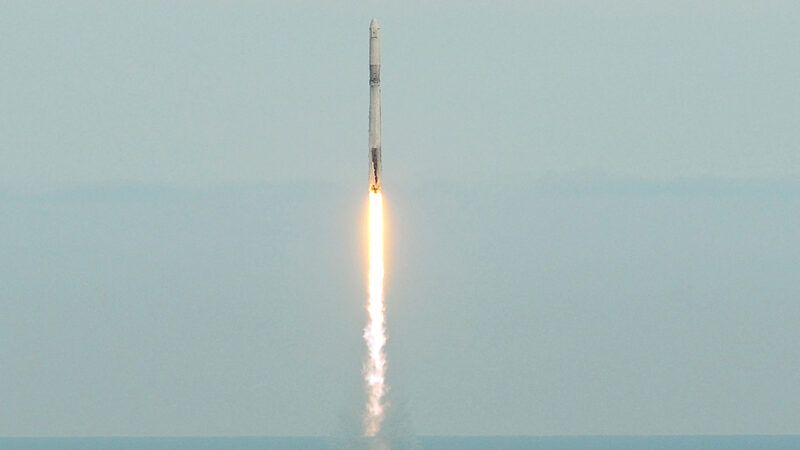Will Environmental Regulations Stop SpaceX?
The lawsuit could be a bellwether of how federal agencies must handle a burgeoning private space industry.

A federal court is mulling whether Elon Musk's SpaceX should have to complete time-consuming and expensive environmental reviews of private space launches for its satellite-beamed internet service, Starlink.
The legal battle, which began in December 2020 and now awaits a ruling from the U.S. Court of Appeals for the District of Columbia, was initiated by ViaSat, a satellite communications company and SpaceX competitor. If the courts side with ViaSat, the case could pile huge new regulatory costs on private space flights and satellite launches, based on regulations that are decidedly earthbound.
At issue is the National Environmental Protection Act (NEPA), a Nixon-era law that requires federal agencies to conduct extensive environmental reviews before granting approval for new projects. Although it was obviously intended to regulate the construction of projects such as roads and pipelines, NEPA contains no language limiting its geographic scope. ViaSat contends that the Federal Communications Commission (FCC) should have had to complete a NEPA review before giving Starlink permission to operate in Earth's orbit.
What does that have to do with the environment of the United States? Not much.
The Federal Aviation Administration (FAA), which is responsible for regulating emissions from SpaceX launches, did complete NEPA reviews before granting permission to Starlink. The FCC's jurisdiction is limited to the signals sent and received by what Starlink says will one day be a 4,000-satellite fleet capable of beaming high-speed internet to most of the planet.
In the lawsuit, ViaSat and several environmental groups essentially are asking federal courts to force the FCC to engage in a duplicative review process. The only actual environmental threat they cite is the potential for Starlink satellites to contribute to "light pollution."
This is, of course, ridiculous. "The selective use of NEPA challenges shows how broadly worded statutes and regulations are susceptible to weaponization by private actors whose concerns may be driven more by commercial competition than by environmental protection," says Michael Ellis, a visiting fellow at the Meese Center for Legal and Judicial Studies at the Heritage Foundation.
Still, the lawsuit could be a bellwether of how federal agencies must handle a burgeoning private space industry. "Are such projects to flourish, setting in train a virtuous cycle of growing wealth, fresh discovery, greater abundance, and new possibilities?" ask attorneys for TechFreedom, a nonprofit organization that supports innovation free from government control, in an amicus brief urging the D.C. Circuit to reject ViaSat's claims. "Or are they to starve in their cradles, victims of small-mindedness, petty squabbling, and a status-quo bias?"
